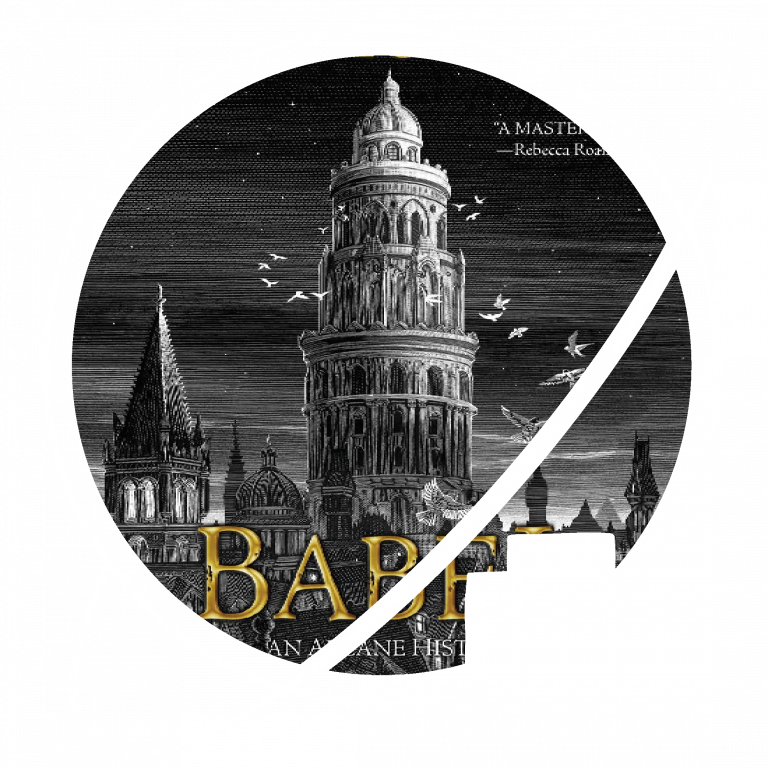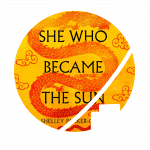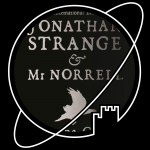- Book written by R.F. Kuang
- Published 23 August 2022
- Stand Alone
In a fictionalised version of the 1820s-1830s, Robin Swift is taken from his mother’s deathbed in his native Kanton (now mostly called Guangzhou) as a young boy. He is sent to Oxford in Britain to study translation: the art of producing magic from the difference in meaning between translated words in different languages. The more time he spends in Britain, the more he is torn by the contradiction between his love for Oxford’s translation institute Babel and the study of languages on the one hand, and his growing unease at Britain’s role in the world and Babel’s role in Britain. Almost as much as it is Robin’s story, Babel is a political statement on the exploitation of the Third World, both in the 1830s and now.


Listened to the audiobook with Chris Lew Kum Hoi and Billie Fulford Brown – great rendition, which allowed me to actually hear what the Chinese languages sound like.
There are two things which are particularly remarkable about Babel. The first is the magic system, and the second is its message.
Kuang came up with a very original, creative magic system based on the loss of meaning when a word is translated from one language to another. When both words are inscribed in a bar of silver and spoken aloud, the bar produces a spell similar to the meaning lost in translation. This means the book is littered with ‘match pairs’ of not-quite-translatable words, and constantly invites you to come up with combinations of your own. This amazing idea rightly came up in social media under our post on cool bits of worldbuilding and was the reason I decided to pick up this book. Unfortunately, while I absolutely loved the magic system in concept, I felt the execution was a bit lacklustre, in that the bars’ actual effects, while based in the lost meaning, felt quite random to me (and sometimes conveniently conformed to the plot’s demands). It is still a great idea and especially initially I was just as awed as Robin and his fellow students. But for how central the concept of translation is in the book (it is, after all, a book set in a magic school), I would have liked to see more effort spent on nailing it down a bit more. But I tend to like my magic systems either pretty hard boiled, or super soft – so take that into account.
Perhaps even more importantly, this book is remarkable because reading it feels like reading a pamphlet on anti-colonialism almost as much as it feels like reading a fantasy book. Many of the main characters, having been forced from their native countries to study in Britain and to put their language skills at the service of the British Empire, experience fierce racism at the hands of the social structure they are helping to maintain – and that is maintaining them. Kuang writes convincingly on how this experience shapes them, and on how the characters struggle with living life in (relative) luxury at the expense of an institution that they equally love and abhor.
The book’s full title is “Babel: Or the Necessity of Violence: An Arcane History of the Oxford Translators’ Revolution”. As one might imagine, therefore, the necessity of violence is a recurring theme in Babel. The central question the characters in this book are dealing with is not so much ‘is colonialism bad?’ (it clearly is), but rather, ‘what means are justified to fight an unjust system?’. While the ‘case study’ is colonialism, that moral/philosophical question is applicable more broadly. I will leave it up to you to answer that question for yourself, and interpret the book to find Kuang’s answer.
I have to admit that a fantasy book with such an overt political message took some adjusting from my side (as I’ve argued, politics tends to be the field of sci-fi). But I think Kuang dodges some of the more questionable aspects of fantasy as a medium for political expression by firmly grounding her work in reality: as an alternate history/historical fantasy, the book is set in a recognisable Victorian Britain. While clearly there are some differences due to silverworking, the social structures we are presented with are – on the whole – comparable to historical reality. I have to admit that it was actually rather refreshing to read a book which is so openly activist. I do not want to take anything away from more subtle treatment of 21st-social century themes (such as, for example, in the Murderbot Diaries or She Who Became the Sun) – but this book has a message and is very upfront about it.
So – what do I actually think of – you know – the story itself? It’s not bad, but I do think it is a bit overshadowed by the message. The plot didn’t always make complete sense (to me, at least), sometimes seemingly just trying to move to the end to raise the questions this book is really about. And some characters felt more like personified moral positions or political messages than people of flesh and blood. Having said that, I think Babel is very much worth reading, not only because of its refreshing message but also because of its worldbuilding. And I repeat: the story is not bad, just not as good as some other books out there. What is more, I think that activist fantasy in the vein of Babel should exist and should be read, if only to spark debate on the historical patterns of exploitation that are often recycled in fantasy stories with little or no criticism.

Babel is a very impressive book. Right from the start, it dives head first into themes of colonialism, racism and oppression. It confronts you with the horrors of colonialism and forces you to consider the consequences of looking away from suffering in order to maintain a comfortable lifestyle.
For me the strength of the whole book rests on an uncomfortable tension between despising the colonialist system and the people who keep it functioning, and recogising that I myself am making many of these same choices today in order to maintain my own comfortable lifestyle.
Despite these heavy subjects at the heart of the book, it is still a surprisingly enjoyable read. The characters are complex and interesting, and I finished the book quite quickly considering its length. My favourite part of the book is the focus on language and translation. The research that must have gone into this is considerable, and it provides even more food for thought to an already fascinating story.








